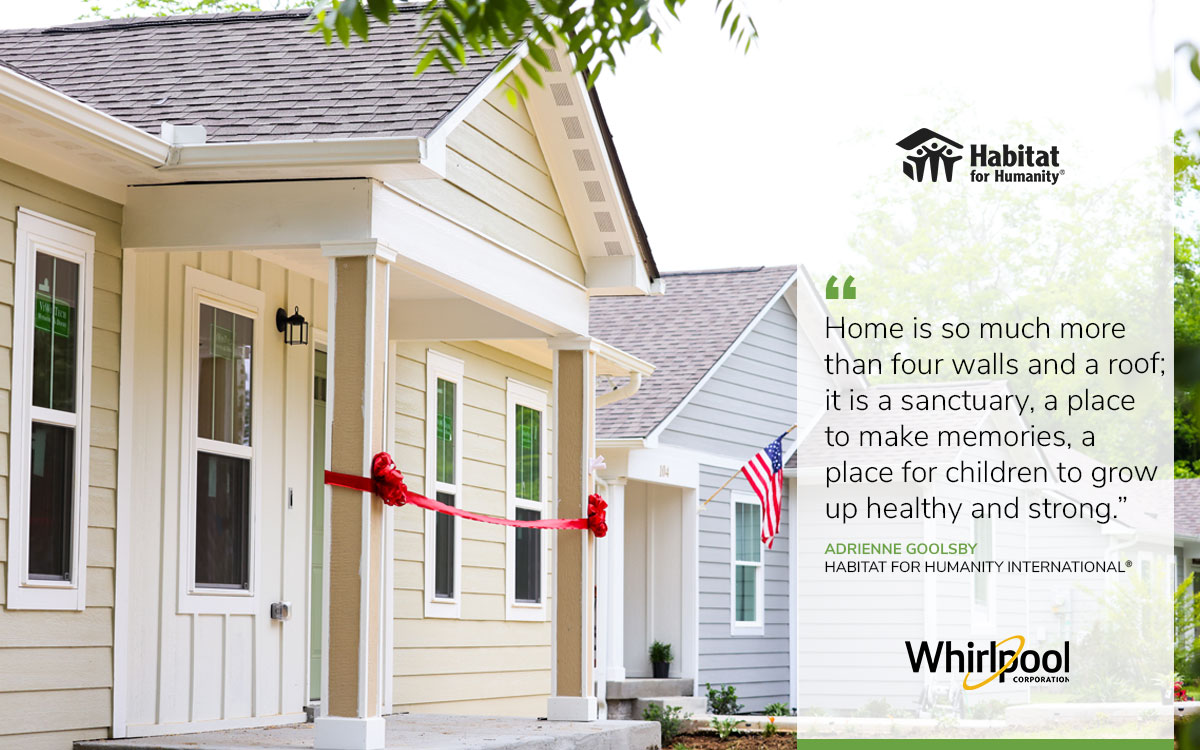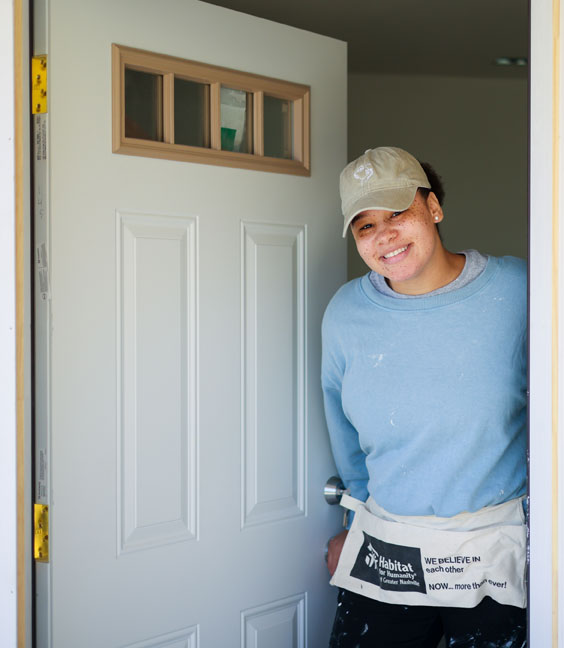
Written by Adrienne Goolsby, senior vice president, U.S. and Canada, Habitat for Humanity International
Recent record-setting inflation has made the cost of everyday essentials like food, gas, and utility bills higher than ever. Paired with the skyrocketing cost of housing, limited availability of affordable homes, and increasingly severe and disruptive weather events, many individuals and families around the world are faced with impossible living situations. When natural or man-made disaster strikes, often homes are damaged or destroyed, which can result in especially tragic outcomes for low-income households with limited means to handle extensive and costly repairs or rebuilding.
 Changing weather patterns also impact how we live within our homes. According to the Center for Climate and Energy Solutions, the average U.S. household spends nearly $2,000 annually on energy bills, which leads to more greenhouse gas emissions and further climate change. Exorbitant energy-bills or expensive maintenance costs can leave low-income households even more cost burdened, forcing them to forgo necessities like food or medicine to maintain power or heat. They may also keep their homes at unsafe or unhealthy temperatures. A 2020 analysis by the U.S. Energy Information Administration found that 34 million U.S. households faced energy insecurity. Rising energy costs contribute to the financial burden that comes with housing, making affordable housing unattainable for far too many families. As climate change continues to affect weather and intensify disasters, the need for sustainable building practices and climate-resilient homes is becoming increasingly apparent.
Changing weather patterns also impact how we live within our homes. According to the Center for Climate and Energy Solutions, the average U.S. household spends nearly $2,000 annually on energy bills, which leads to more greenhouse gas emissions and further climate change. Exorbitant energy-bills or expensive maintenance costs can leave low-income households even more cost burdened, forcing them to forgo necessities like food or medicine to maintain power or heat. They may also keep their homes at unsafe or unhealthy temperatures. A 2020 analysis by the U.S. Energy Information Administration found that 34 million U.S. households faced energy insecurity. Rising energy costs contribute to the financial burden that comes with housing, making affordable housing unattainable for far too many families. As climate change continues to affect weather and intensify disasters, the need for sustainable building practices and climate-resilient homes is becoming increasingly apparent.
At Habitat for Humanity, we know that affordable housing and sustainability go hand in hand. From reducing utility bills through energy-efficient homes to using conscientious building practices, we’re continuously exploring ways to build our homes to benefit families and the environment. With the support of partners like Whirlpool Corporation, we are doing that and much more.
Through the BuildBetter with Whirlpool initiative, Habitat and Whirlpool are actively creating ways to help homeowners mitigate the impacts of climate change. We are building homes that are disaster-resilient and can withstand increasingly severe weather events. We are building homes that are energy-efficient and incorporate features such as solar panels, water-conserving plumbing fixtures, and high-efficiency heating and cooling. And we are building homes at code-plus standards. These measures provide Habitat homeowners the potential to not only save on monthly utility bills, but also the opportunity to live in healthier, more resilient homes. Whirlpool and Habitat have 143 homes in progress through the initiative, which began in June 2021.
During our 22-year partnership, we have made profound impact on the lives of families around the world. Home is so much more than four walls and a roof; it is a sanctuary, a place to make memories, a place for children to grow up healthy and strong.
Whirlpool Corp.’s House + Home initiative reflects their commitment of building homes and improving the communities they serve, while helping families secure brighter, stronger, and healthier futures. Whirlpool shares our vision and mission of creating a world where everyone has a decent place to live. We are excited and look forward to the future possibilities of our continued partnership.